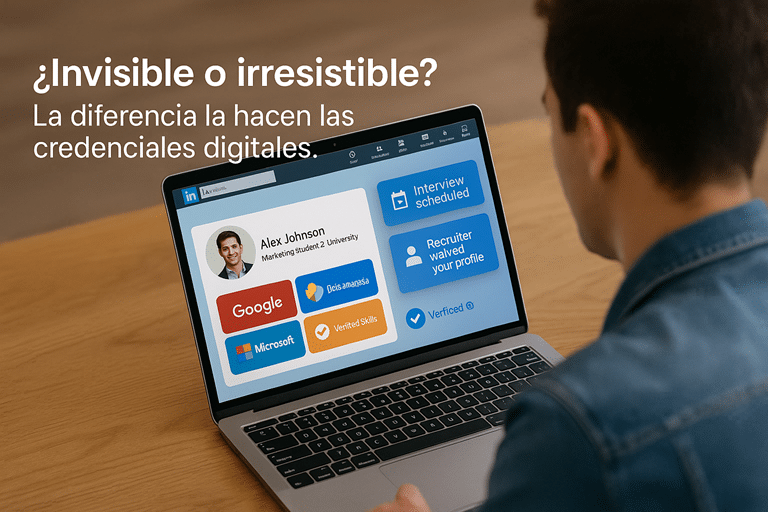Today, education and professional development are undergoing a significant transformation thanks to Micro-credentials. This emerging concept has become a crucial global trend for continuous training and improvement of skillsIn Latin America, where skills gaps are a persistent challenge, Micro-credentials They offer a promising solution to improve employability and respond to labour market demands.
1. Learning outcomes certifications
Micro-credentials are certifications that validate the learning results obtained in short-term training experiences, such as a short course or training.
2. Digital Badges
Also known as digital badges, Micro-credentials are collected through applications, websites or data systems. They typically demonstrate shorter, more specialized learning than a traditional diploma, degree or certificate.
3. Flexibility and customization
They offer a flexible and personalized way to help people acquire the knowledge, skills and competencies they need for their personal and professional development.
4. Physical or Virtual Certificates
Micro-credentials are defined as physical or virtual certificates that validate skills obtained through short-term courses or training, focusing on a very specific competency or knowledge.
5. Digital Certifications
Its digital certifications that provide evidence that an individual has mastered a specific skill or area of knowledge. Once the specific requirements are completed, the user receives a digital certificate as proof of completion.
6. Digital Representations of Competencies
In their purest essence, they are digital representations of specific competencies and skills. But beyond its definition, we find a vibrant and constantly evolving ecosystem.

7. Subset of Credentials
A large subset of credentials can be called Micro-credentials: they typically focus on a specific set of learning outcomes in a narrow field and are achieved in a shorter period of time.
8. Knowledge Fragments
They are fragments of knowledge that are studied in a short period of time. Unlike traditional degrees, they focus on skills and are earned through a variety of methods. They are flexible and adapt to the labor market.

9. University Certificates
Micro-credentials are certificates that recognize the new range of courses and degrees offered by the university, adapting to new training demands.
10. Promising solution
In Latin America, Micro-credentials offer a promising solution to improve employability and respond to labor market demands. These small but mighty certifications are shaping the future of learning and work in the region.
If you would like to implement Micro-credentials at your university or Academy and don’t know where to start, write to us at info@acreditta.com And we help you.
Subscribe to blog here and receive all our content







